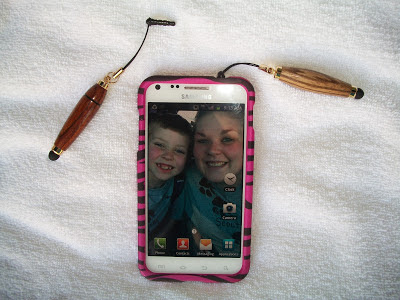Apple Cider Vinegar
For years, vinegar has been used for many purposes: making pickles, killing weeds, cleaning coffee makers, polishing armor, and dressing salads. It's also an ancient folk remedy, touted to relieve just about any ailment you can think of.
I know personally that Apple Cider Vinegar helps take the heat out of sunburn and can cure a skin rash or fungus over night if put on a rag and put on the area (hold in place with plastic wrap).
What Is Apple Cider Vinegar?
Vinegar is a product of fermentation. This is a process in which sugars in a food are broken down by bacteria and yeast. In the first stage of fermentation, the sugars are turned into alcohol. Then, if the alcohol ferments further, you get vinegar. The word comes from the French, meaning "sour wine." While vinegar can be made from all sorts of things -- like many fruits, vegetables, and grains -- apple cider vinegar comes from pulverized apples. The main ingredient of apple cider vinegar, or any vinegar, is acetic acid. However, vinegars also have other acids, vitamins, mineral salts, and amino acids.
Apple Cider Vinegar: Cure for Everything? During the alternative type medicine boom of recent years, apple cider vinegar and apple cider vinegar pills have become a popular dietary supplement. But, hardly a cure for everything.
Look on the back of a box of supplements -- or on the Internet or in the pages of any one of the many books on vinegar and health -- and you'll find some amazing claims. Apple cider vinegar is purported to treat numerous diseases, health conditions, and annoyances. To name a few, it's supposed to kill head lice, reverse aging (seen me? don't think this works...lol), ease digestion, and wash toxins from the body.
Most of these claims have no evidence backing them up. Some -- like vinegar's supposed ability to treat lice or warts -- have been studied, and researchers turned up nothing to support their use. Other claims have been backed up by studies, but with a catch: vinegar may work, but not as well as other treatments. For instance, while vinegar is a disinfectant, it doesn't kill as many germs as common cleaners.
But there are some medical uses of vinegar that do have promise, at least according to a few studies I have read from various sources. Diabetes. The effect of vinegar on blood sugar levels is perhaps the best researched and the most promising of apple cider vinegar's possible health benefits. Several studies have found that vinegar may help lower glucose levels. For instance, a 2007 study of 11 people with type 2 diabetes found that taking two tablespoons of apple cider vinegar before bed lowered glucose levels in the morning by 4%-6%. I was on a diet one time that said I could lose weight by putting a two tablespoons of vinegar on any vegetables I ate and to do so at every meal. High cholesterol. A 2006 study showed evidence that vinegar could lower cholesterol. However, the study was done in rats, so it's too early to know how it might work in people. Blood pressure and heart health. Another study in rats found that vinegar could lower high blood pressure.
Weed killer...put apple cider vinegar in a spray bottle and spray on what ever weed you want to kill...it will also take the grime off your sink or tub faucets...I LOVE apple cider vinegar, but the thought of killing weeds or removing faucet grime AND lowering my blood sugar some how does not compute in my brain. ROFL
WHAT DO YOU USE APPLE CIDER VINEGAR FOR AT YOUR HOUSE?

















.jpg)





.jpg)

































